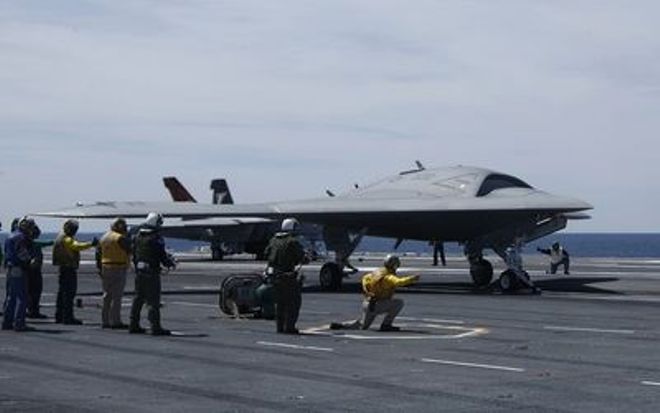
Monday November 2, 2015

The Drone Papers uproot imaginings of precision strikes, says the writer. Picture: REUTERS/JASON REED
advertisements
THE US-based online publication The Intercept recently released The Drone Papers, including a cache of classified documents from an anonymous US intelligence source.The papers provide insight into the covert exponential expansion of US military presence in Africa. Moreover, they report flaws in the US drone programme’s claims to precision. During five months of one campaign in Afghanistan, nearly 90% of those killed were not the intended targets. Throughout, the papers are chilling in their description of the sanitised language used to describe killing.
The Drone Papers detail the US’s quiet accumulation of camps throughout Africa, according to investigative journalist Nick Turse, "to eradicate … ‘tyranny of distance’ (allowing) US forces to surveil and operate on larger … swathes … and, increasingly, to strike targets".
Documents detail drone operations in Somalia and Yemen and a secretive task force headquartered in Djibouti, which "carried out a shadow war in the region".
This is in the context of exponential but underreported US military expansion in Africa since 9/11. Turse calculates that, last year, the US military conducted 674 military operations in Africa.
This expansion, however, has been framed in innocuous language. The US Africa Command refers to its activities through friendlier descriptors of capacity building and training. This self-description represents an overemphasised distinction between training and combat. It is an ahistorical approach to US strategy. One need look no further than Cold War proxy wars to know that US troops on the ground are no prerequisite for insidious fighting.
Moreover, the noncombative involvement of US soldiers appeals to a large proportion of the US public, which is squeamish about the death of US troops (less squeamish about the death of unarmed black people domestically, and profoundly unsqueamish about the deaths of unarmed black people globally).
But, as the papers detail, beyond training there are substantial drone strikes in the Horn of Africa and the Middle East. Like training, drone warfare, in limiting US casualties, appeals to the US public. A recent Pew poll notes that 58% of Americans approve of US drone strikes in Pakistan, Yemen and Somalia.
Drone warfare is framed as a surgical approach. Its advocates speak of its precision, its obviating of US casualties and its limitation of "enemy casualty" through intelligence gathering. The Drone Papers uproot imaginings of precision. During one operation in Afghanistan, in a year, US air strikes killed more than 200 people, of whom only 35 were the intended targets.
The Intercept editor Jeremy Scahill notes that in Somalia, with less intelligence available, the ratios could be substantially higher.
In addition to "collateral damage", drone strikes show the Islamophobia that defines enemy status based on collective punishment. The weaponised rhetoric of the war on terror is used to justify a suspension of humaneness of the targeted, based on nebulous threat, in the name of counterterrorism.
Profoundly, the papers expose US linguistic acrobatics of both divorcing killer from killed, and humaneness from victims.
Baseball cards provide intelligence about those it targets, including "life patterns". People targeted for assassination are referred to as "jackpots". People killed when targets are missed are called Ekia — "enemy killed in action".
These words strip action of what it is — killing — creating a sense that "jackpots" are not humans whose lives are being taken, but fictions with playful nomenclature. In this way, acronym and platitude act as distributor of humaneness, of whose life is valuable and whose expendable, reduced to the lexicon of trivialised killing. Denuding war and militarism of their cruelty through discursively appealing phrasing fails to erode the destruction and coloniality of global militarism.